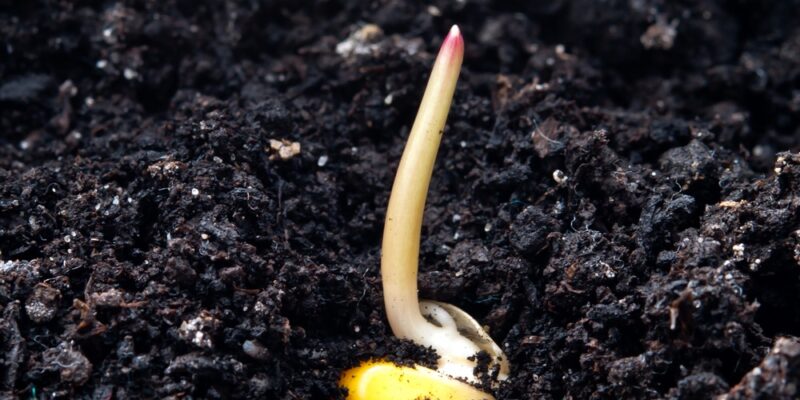Waiting for seeds to sprout can be frustrating.
This guide will help you understand what factors affect seed germination, when to expect them to sprout and how to encourage them to germinate.
What affects the germination time?
The following are the most important factors that influence the germination of seeds.
- Temperature
- Age
- Light
- Water
- Genetic traits
- Oxygen levels
- Soil structure
Temperature
The temperature plays an important role in the germination of seeds, so gardeners must follow planting schedules according to season for maximum crop production.
Some seeds will sprout at temperatures as low as 45-50degF, while others may not start sprouting until 75degF.
The seed will still germinate if you provide the correct temperature, but the odds are dramatically reduced if the temperature is not right.
Age Of Seeds
Two reasons make it difficult for old seeds to sprout:
The seed casing may become too rigid to absorb the water required for germination.
The food stored inside the casing can also dry out and become unusable, no matter how much moisture it is exposed to.
The expiration date on the seed packet can help you avoid frustration when trying to grow plants from old seeds. For best results, only sow seeds of the current year.
Light
Germination is triggered by light or, more specifically, the wavelengths of white and red. The amount of light that each seed species needs to germinate can vary greatly.
You can quickly determine the right light conditions by reading the instructions on seed packets or doing some online research. Some seeds need full sunlight, while others require shade.
Water
As a seed absorbs the water, it activates enzymes. This process triggers sprouting and is the reason why seeds remain dormant in dry weather.
The enzymes convert the stored “food” into energy that is used to first grow the root.
The root will then take the moisture and nutrients it needs from the soil, and use the material that is still in the seed for a shoot to form and cotyledons to produce the first leaves that allow the plant to harvest energy from the sun through photosynthesis.
Genetic Traits
Many people are surprised to see that the germination time of different vegetables seeds can range from 3-30 days.
Vegetables are grown in climates that differ greatly.
The seed’s outer shell is genetically thicker or thinner depending on the environmental conditions. This allows it to survive an unexpected cold snap or flood. It doesn’t matter if you take a cold seed to a warmer region. The genetics will make it germinate slower.
Oxygen Levels
Plants and people cannot grow or survive without the right amount of oxygen. Seeds can survive without oxygen during their dormancy, but they need air to germinate.
Carbon dioxide is essential for the photosynthetic process, which makes oxygen even more vital.
Soil Structure
For high germination, the structure of soil is crucial.
The soil should be loose and contain enough organic matter for a seed to draw oxygen.
The seed will not germinate if the soil is saturated and packed tightly.












Comments